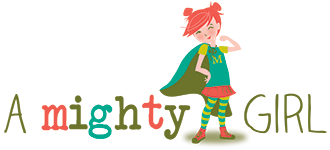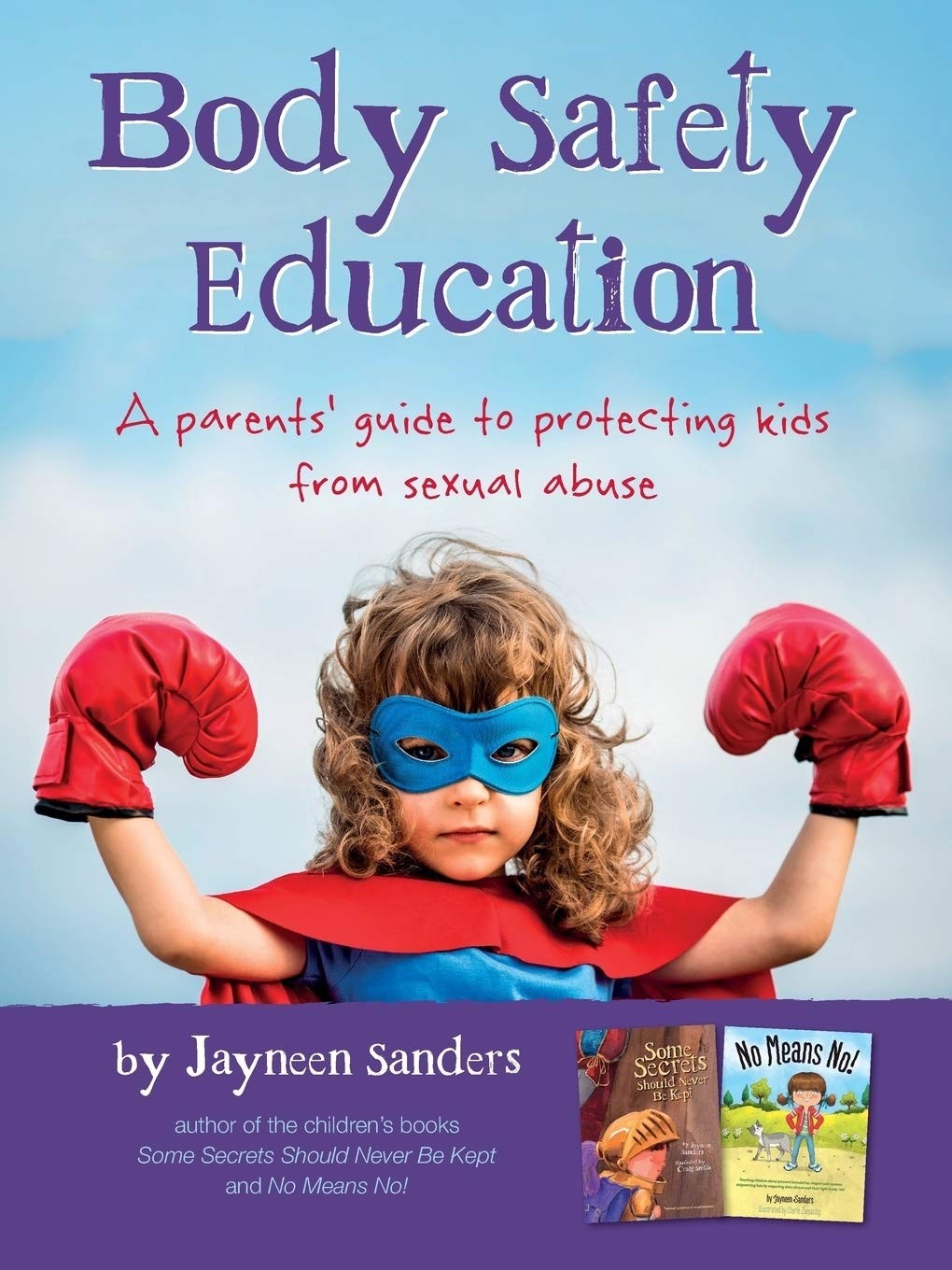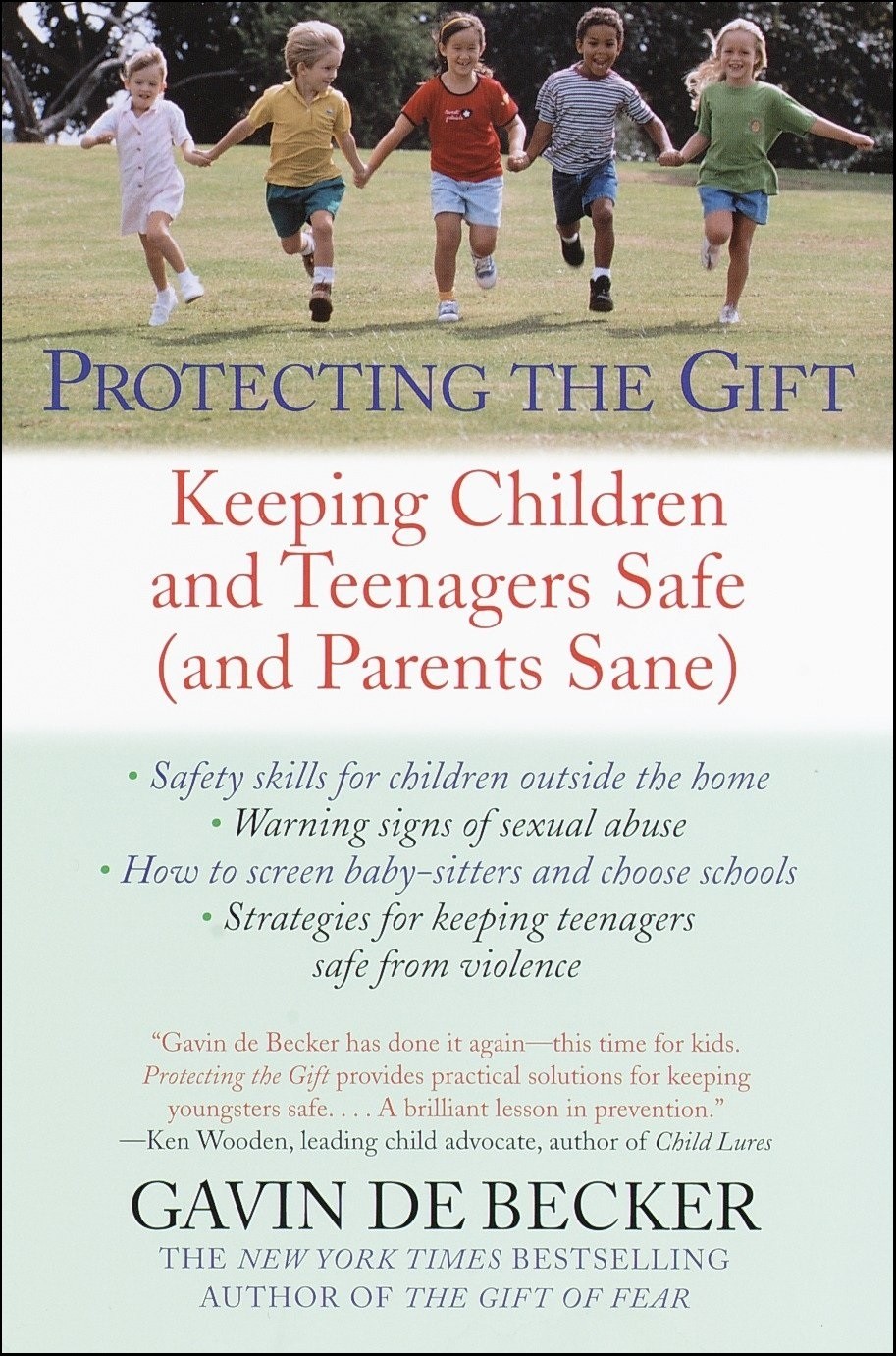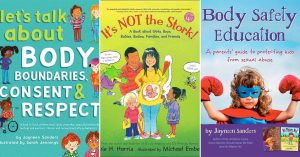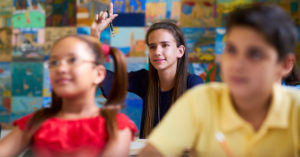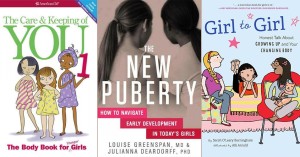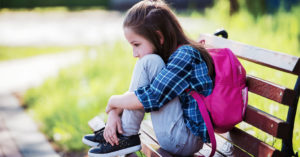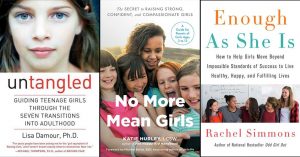"My daughter's body is actually hers, not mine."
 The many gatherings of family and friends during the holiday season give parents a special chance to teach their daughters an empowering lesson: you don't owe anyone your physical affection. "The ritual of demanding affection from children on cue is one of those tiny, everyday little lessons in which we teach children — especially girls — that they are to tailor their emotional responses to please others," observes blogger Kasey Edwards in a Daily Life op-ed. By letting kids decide whether to greet someone with a hug or a kiss, parents can teach the basics of consent and bodily autonomy as early as the toddler years. And, such lessons can have an impact for years to come as Girl Scouts' development psychologist Andrea Bastianai Archibald explains: "The notion of consent may seem very grown-up and like something that doesn’t pertain to children, but the lessons girls learn when they’re young about setting physical boundaries and expecting them to be respected last a lifetime."
The many gatherings of family and friends during the holiday season give parents a special chance to teach their daughters an empowering lesson: you don't owe anyone your physical affection. "The ritual of demanding affection from children on cue is one of those tiny, everyday little lessons in which we teach children — especially girls — that they are to tailor their emotional responses to please others," observes blogger Kasey Edwards in a Daily Life op-ed. By letting kids decide whether to greet someone with a hug or a kiss, parents can teach the basics of consent and bodily autonomy as early as the toddler years. And, such lessons can have an impact for years to come as Girl Scouts' development psychologist Andrea Bastianai Archibald explains: "The notion of consent may seem very grown-up and like something that doesn’t pertain to children, but the lessons girls learn when they’re young about setting physical boundaries and expecting them to be respected last a lifetime."
Letting kids decide what greeting to offer is rooted in a simple idea, as Katia Hetter describes in a CNN op-ed: "[My daughter's] body is actually hers, not mine. It doesn't belong to her parents, uncles and aunts, school teachers or soccer coach. While she must treat people with respect, she doesn't have to offer physical affection to please them. And the earlier she learns ownership of herself and responsibility for her body, the better for her." At the holidays, parents — and kids — can feel even more pressure to be physically affectionate than during the rest of the year in an effort to please family members or to maintain public appearances. But as Edwards says, when we prioritize "social harmony" over the wishes of our girls, we're effectively telling them that "‘It’s ok to say no’ — except when it isn’t."
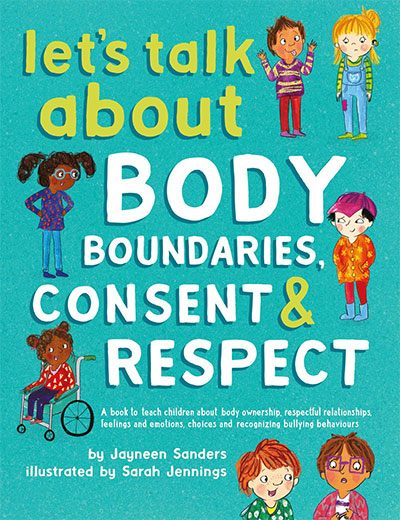 Experts agree with Edwards and Hetter. Ursula Wagner, a mental health clinician in Chicago says that "[forced physical affection] sends a message that there are certain situations [when] it's not up to them what they do with their bodies." That message can have multiple repercussions as children grow: Irene Van der Zande, cofounder of Kidpower Teenpower Fullpower International, says that by “forcing children to submit to unwanted affection in order not to offend a relative or hurt a friend's feelings, we teach them that their bodies do not really belong to them because they have to push aside their own feelings about what feels right to them... [this can lead] to children getting sexually abused, teen girls submitting to sexual behavior so 'he'll like me' and kids enduring bullying because everyone is 'having fun.'”
Experts agree with Edwards and Hetter. Ursula Wagner, a mental health clinician in Chicago says that "[forced physical affection] sends a message that there are certain situations [when] it's not up to them what they do with their bodies." That message can have multiple repercussions as children grow: Irene Van der Zande, cofounder of Kidpower Teenpower Fullpower International, says that by “forcing children to submit to unwanted affection in order not to offend a relative or hurt a friend's feelings, we teach them that their bodies do not really belong to them because they have to push aside their own feelings about what feels right to them... [this can lead] to children getting sexually abused, teen girls submitting to sexual behavior so 'he'll like me' and kids enduring bullying because everyone is 'having fun.'”
Teaching kids about the importance of respecting body autonomy from a young age is also an important part of keeping them safe from sexual abuse. "Sadly, we know that some adults prey on children," Archibald observes, "and teaching your daughter about consent early on can help her understand her rights, know when lines are being crossed, and when to go to you for help.” Of course, that doesn't mean that people asking for hugs and kisses are abusers or acting predatory; however, Edwards asserts, "we still need to make clear to our children that if they ever feel uncomfortable, and feel that they’re being pressured to oblige, then they have the right to say no — even if it causes offense."
Hetter also points out that allowing children to refuse hugs does not mean allowing them to be rude: “She has to be polite when greeting people, whether she knows them or not. When family and friends greet us, I give her the option of ‘a hug or a high-five.’ Since she's been watching adults greet each other with a handshake, she sometimes offers that option.” Van der Zande agrees: "By age 6 or 7, even shy kids can shake somebody's hand or wave or do something to communicate respect and care. Manners — treating people with respect and care — is different than demanding physical displays of affection."
Finally, to avoid disappointed or critical responses from those denied a hug or kiss, Hetter says it helps to explain to family members “why we're letting her decide who she touches.” And, she's observed an additional benefit to letting her daughter lead the way when it comes to physical contact: “When my child cuddled up to my mother on the sofa recently, happily talking to her about stories and socks and toes and other things, my mother's face lit up. She knew it was real."
Resources about Consent and Bodily Autonomy
My Body! What I Say Goes!
My Body! What I Say Goes!
Kids can find confidence and courage in knowing they control their own body! This book teaches body safety skills, from understanding and knowing how to act on feeling uncomfortable with someone's behavior, to respecting body boundaries, to knowing your body — including private parts — by proper anatomical names, to building a support network you can count on when you need to talk. Throughout, kids are taught essential body safety skills that will help keep them safe as children, and help them grow up to be assertive and confident teenagers and adults. For another excellent title by the same author, check out No Means No: Teaching Children About Personal Boundaries, Respect, and Consent.
Let's Talk About Body Boundaries, Consent, and Respect
Let's Talk About Body Boundaries, Consent, and Respect
It's important for kids to understand that bodies have boundaries, and that everyone has a right to their own personal space. Jayneen Sanders, an experienced early years educator, provides simple and familiar scenarios — from giving a hug to pushing to get to the front of a line — to illustrate how "body bubbles" surround everyone and how to figure out when and if it's okay to cross those boundaries. Throughout, she empowers kids to speak up if their body boundaries have been crossed. Notes at the end include suggestions for adults reading the book with kids to further the discussion, building an understanding of respect and consent that will serve them throughout their lives.
Consent (for Kids!)
Boundaries, Respect, and Being in Charge of YOU
Consent (for Kids!)
Boundaries, Respect, and Being in Charge of YOU
It's easier than you think to explain concepts of consent and bodily autonomy to kids! In this funny, colorful, and insightful book from Rachel Brian, co-creator of the "Tea Consent" viral video, kids will learn about what boundaries are, how to set them, and what to do if someone else makes them feel uncomfortable. They'll also learn to examine their own actions and recognize how they may accidentally breach someone else's boundaries — and how they can learn to practice consent themselves. After all, as Brian points out: "CONSENT TAKES PRACTICE. The more that people around you practice consent, the more natural it is for everyone." This appealing and empowering introduction to consent will help raise a generation to respect themselves... and others.
Stand Up for Yourself and Your Friends
Dealing with Bullies and Bossiness and Finding a Better Way
Stand Up for Yourself and Your Friends
Dealing with Bullies and Bossiness and Finding a Better Way
This book from the American Girl Library is a great starting point for tweens looking for advice on dealing with bullies. Rather than telling girls that there is a “right” way to handle a bully, this book gives a variety of different options, from ignoring taunts to comebacks to involving adults, as well as advice as to how to decide which strategy to use. The book acknowledges that not all mean behavior is necessarily malicious, though, and also provides a guide to knowing how to stand up to a friend who is behaving badly without being mean yourself.
Maybe He Just Likes You
Maybe He Just Likes You
When Mila wears a fuzzy green sweater to school one day, and suddenly, several boys insist on hugging her, even when she doesn't want to. Before long, there are smirks, comments about her body, and more unwanted touching that leaves Mila feeling confused, frustrated, and a little scared. But when she talks to her friends about it, one tells her that she's being immature for overreacting to the boys "just flirting" – after all, she says, maybe he just likes you. Fortunately, a few new friends and a confidence boost from karate classes help her figure out how to set boundaries, stand up for herself, and seek out the adult support she needs to put an end to the harassment. Timely and important, this empowering book draws a clear line between wanted, reciprocal flirtation and Mila's experience, and explores issues of sexual harassment in a manner relatable to middle grade readers.
Express Yourself
A Teen Girl's Guide to Speaking Up and Being Who You Are
Express Yourself
A Teen Girl's Guide to Speaking Up and Being Who You Are
In an effort to be “likeable” and “nice”, many teen girls feel pressured to avoid speaking their mind or asserting their opinion — they may even fear being labeled “bossy” or “pushy” if they’re too outspoken. This book is designed to help teens remember they have a right to be heard — and find the confidence to speak up! Written in an accessible and friendly tone, with individual chapters tackling common situations like family conflict, digital drama, and romantic relationships, this guide by psychotherapist Emily Roberts draws on techniques from cognitive behavioral therapy to teach your teen how to express her opinion, stand up for herself in any situation, and boost her self-esteem and confidence.
For Goodness Sex
Changing the Way We Talk to Teens About Sexuality, Values, and Health
For Goodness Sex
Changing the Way We Talk to Teens About Sexuality, Values, and Health
With sex education today often leaving young adults ill-equipped to make safe decisions, they often turn to peers, the Internet, and the media, where they receive problematic messages about sex: boys are studs, girls are sluts; real sex should be like porn; hookups are better than relationships. In this book, sexuality educator Al Vernacchio offers a progressive and realistic approach that challenges traditional teaching models and instead embraces 21st century realities by promoting healthy sexuality, values, and body image in young people. Filled with real-life examples from the classroom, exercises and quizzes, and a wealth of sample discussions and crucial information, For Goodness Sex offers the tools and insights adults need to talk young people and help them develop healthy values and safe habits.
Body Safety Education
A Parents' Guide to Protecting Kids from Sexual Abuse
Body Safety Education
A Parents' Guide to Protecting Kids from Sexual Abuse
This book is a step-by-step guide to help parents and educators keep kids safe from sexual abuse! With Body Safety Education, adults who live or work with children will learn how to teach them about important concepts like bodily autonomy, privacy, and inappropriate touch. They'll also learn how to spot signs of problems, like how an adult may try to groom a child. At the same time, kids are empowered by learning that "I am the boss of me," setting them up for ongoing assertiveness and confidence! With age appropriate language and simple, easily conveyed lessons, this book helps give children a thorough grounding in keep their bodies safe.
Protecting The Gift
Keeping Children and Teenagers Safe (and Parents Sane)
Protecting The Gift
Keeping Children and Teenagers Safe (and Parents Sane)
Parents want to keep their kids safe, but you can't keep kids in a bubble — so how do you know what safety skills to teach at every age and stage? Gavin de Becker, author of the bestseller The Gift of Fear, provides practical guidance to ensuring kids are safe at every age, while still having an appropriate level of freedom... and without making them scared of the world beyond their doorsteps. From knowing what to ask child care professionals before you hire them, to teaching kids what to do if they get lost in a public place, to preparing your teen for increasing independence, the recommendations in this book will reassure parents and empower kids.
